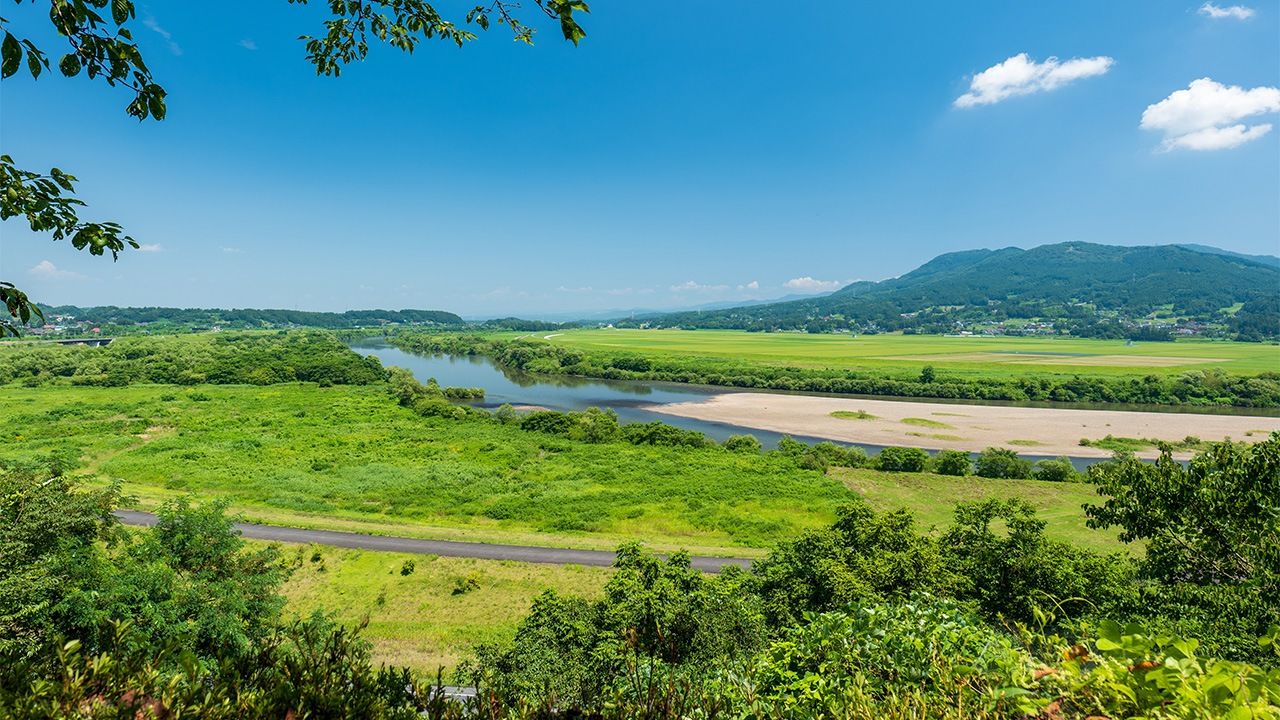
A Journey Through Japanese Haiku
A Dream of Warriors
Culture Environment Lifestyle- English
- 日本語
- 简体字
- 繁體字
- Français
- Español
- العربية
- Русский
夏草や兵どもが夢の跡 芭蕉
Natsukusa ya / tsuwamonodomo ga / yume no ato
Summer grasses—
all that remain of
a dream of warriors(Poem by Bashō, written in 1689.)
Bashō wrote this poem on June 29, 1689, during his journey recorded in Oku no hosomichi (trans. by Steven D. Carter as The Narrow Road Through the Hinterlands). It was composed at Takadachi Castle in Hiraizumi, where the twelfth-century warrior Minamoto no Yoshitsune and his followers were defeated in a battle against the forces of his brother Yoritomo, the first of the Kamakura shōguns. As such, it is typically read today as expressing how these warriors, brimming with ambition, were overcome in their final fight, and all that is left now are the summer grasses growing over where they fell. (Based on this reading, the translation would be “Summer grasses— / all that remain of / warriors’ dreams.”)
However, I want to say that Bashō did not intend to convey this meaning. In the time when he was writing, a “dream” (yume) did not signify hopes or wishes, but only the phenomenon that takes place while we are sleeping.
In nō drama, there are many stories in which the main character urges the supporting character to do something via a dream; when the supporting character wakes, the other vanishes. Often a ghost at a particular location wants an offering to be made. There may be grasses growing wild over its grave. Putting these aspects together gives the following reading.
“When I visited Takadachi, I fell asleep and began to dream. There, I saw Yoshitsune, Benkei, and the others who were killed there, and they spoke of their final battle, and asked me to make offerings. When I woke, where I had seen them so clearly, there were only the summer grasses.” Bashō himself becomes a character in a nō drama who speaks with ghosts at a battlefield.
(Originally published in Japanese. Banner photo: Kitakami River as viewed from Takadachi in summer. © Pixta.)
Related Tags
literature haiku Matsuo Bashō Japanese language and literature
